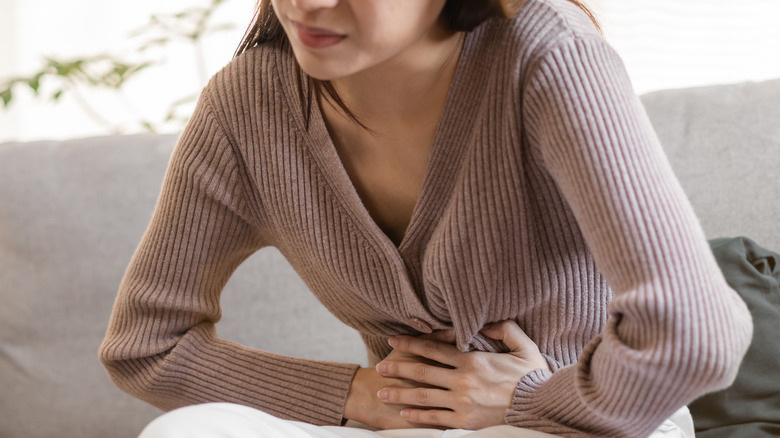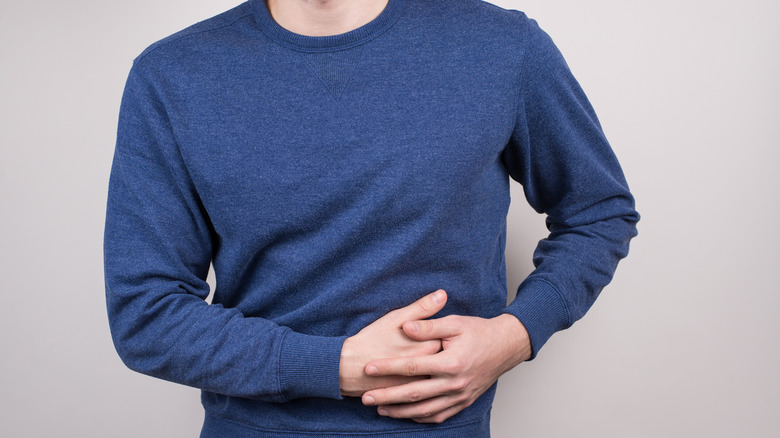Diverticulosis Versus Diverticulitis: What's The Difference?
Diverticulosis and diverticulitis are two forms of diverticular disease related to diverticula, which are small, bulging pockets that form on the wall of the large intestine. These pockets become more common in people as they age.
The presence of diverticula in the intestine is called diverticulosis. Though most instances of diverticulosis don't cause any symptoms, some do. These symptoms include bloating, pain in the abdominal area, constipation, and diarrhea (via WebMD). Interestingly, doctors are not exactly sure what causes these pockets to form. The condition seems to be more prevalent than it was a century ago, so some think that the typical modern-day diet, which includes plenty of highly refined carbohydrates, might be the culprit. Being overweight, smoking, and eating too much red meat may also increase the risks of developing diverticulosis.
Diverticulosis can be mistaken for other conditions, so it is important to have a doctor rule out any other problems, per WebMD.
Diverticulitis is more complicated
Diverticulitis occurs when the diverticulosis pockets tear and become inflamed. Sometimes, they might even become infected. Symptoms of diverticulitis include pain in the lower left side of the abdomen, nausea, fever, constipation, and diarrhea. Like diverticula, diverticulitis is common in people over the age of 40. Diets high in fat and low in fiber also increase the risk of diverticulitis, according to the Mayo Clinic. Complications can result in an abscess, scarring that can cause blockage, or abnormal passageways that form between sections of the bowel.
Treatment for mild diverticulitis includes following a liquid diet for a few days, which will allow the colon to heal. Sometimes, doctors prescribe antibiotics to treat the infection. In severe cases, surgery is necessary if an abscess or abnormal passageway has formed. A diet that includes plenty of water and fiber is generally recommended to help prevent diverticulitis from reoccurring. Probiotics, which help feed the good bacteria in your gut, can also protect against diverticulitis (via Very Well Health).


